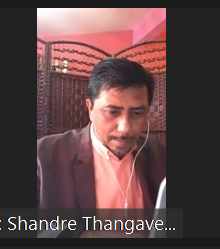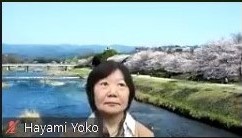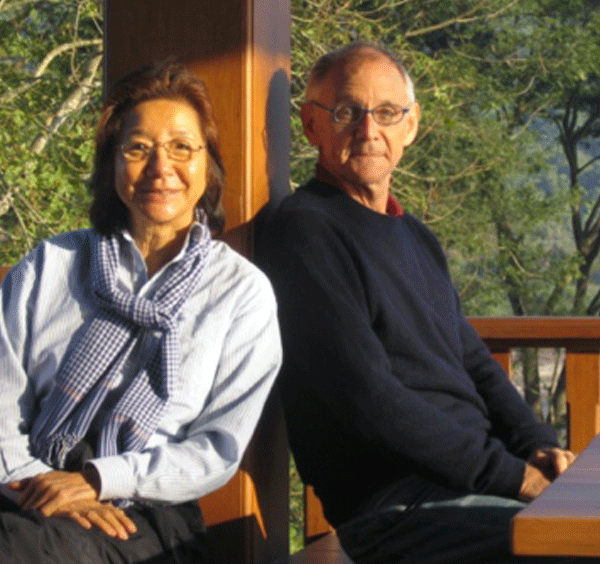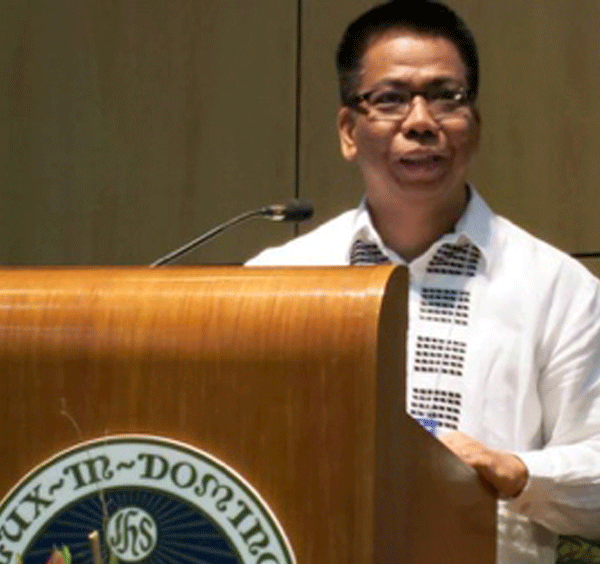The 44th Southeast Asia Seminar: Report
The Covid-19 Pandemic in Japanese and Southeast Asian Perspective
Histories, States, Markets, Societies
Via Zoom Webinar
March 1, 2021, 9 : 00 to 17 : 15
Report
The 44th Southeast Asia Seminar on
The COVID-19 Pandemic in Japanese and Southeast Asian Perspective:
Histories, States, Markets, Societies
The 44th Southeast Asia Seminar was held via Webinar on March 1 and 2, 2021. This year’s theme was “The COVID-19 Pandemic in Japanese and Southeast Asian Perspective: Histories, States, Markets, Societies.”
The 44th Southeast Asia Seminar sought to provide grounds for reflection and comparison by presenting a selection of “case studies” through which prominent experts based in the region adopted a variety of perspectives—historical, epidemiological, political, economic, and socio-cultural—to critically examine the connectivity, impact, and implications of the pandemic, the challenges and lessons it posed, and the policy, market, and quotidian responses adopted by different actors in and across nations and regions.
This year’s seminar provided a virtual space for senior scholars to spend time with up-and-coming researchers. A total of 17 core participants from 7 countries took part in the seminar, and 133 people from 17 countries registered to attend.
The core participants are: Dr. Benny Baskara (Indonesia), Teacher, Halu Oleo University; Jaybee Coronel (Philippines), Government Employee, University of the Philippines-Diliman; Ariza Fuadi (Indonesia), PhD Student/Lecturer, GSID, Nagoya University, Japan/ Universitas Diponegoro; Dr. Nur Aisyah Kotarumalos (Indonesia), Visiting Scholar, Asia Center, Seoul National University; Genta Kuno (Japan), PhD student, ASAFAS, Kyoto University; Dr. Nurhafilah Musa (Malaysia), Senior Lecturer, Faculty of Law, National University Malaysia; Dr. Najmah (Indonesia), Lecturer, Faculty of Public Health, Sriwijaya University (UNSRI); Ha Chau Ngo (Vietnam), Postgraduate Student, The London School of Economics and Political Science; Rosa Bella M. Quindoza (Philippines), Lecturer, Polytechnic University of the Philippines; Dr. Maksimus Regus (Indonesia), Lecturer/Researcher, Universitas Katolik Indonesia Santu Paulus Ruteng, Flores, NTT; Dr. Kazuhiko Shibuya (Japan), Associate Professor, Tokyo Metropolitan University; Dr. Wawan Sobari (Indonesia), Lecturer, Master Program of Social Science, Universitas Brawijaya; Esmond Chuah Meng Soh (Singapore), Graduate Student in History, School of Humanities, Nanyang Technological University; Anna Christi Suwardi (Indonesia), Lecturer, Mae Fah Luang University; Dr. Maria Thaemar Tana (Philippines), Assistant Professor, University of the Philippines Diliman; Wichuta Teeratanabodee, (Thailand), Graduate Student/Student Research Assistant, S. Rajaratnam School of International Studies, Nanyang Technological University; and Huong Vo (Vietnam), PhD candidate, National Chengchi University.
The seminar started with Welcome Remarks by Prof. Hayami Yoko, director of CSEAS Kyoto University, followed by the introduction to the seminar by Assoc. Prof. Decha Tangseefa, the chair of the seminar committee. After each core participant introduced themselves, the first day of the seminar was lined up with exciting presentations of distinguished speakers.
Prof. Woo Wing Thye, President of the Jeffrey Cheah Institute for Southeast Asia and Director of the Jeffrey Sachs Center on Sustainable Development, Sunway University, kicked off the day with his lecture titled “Worrying about the Next Pandemic (Despite the Assured Absence of Donald Trump)”, followed by a talk by Prof. Kurokawa Kiyoshi, Chair of Japan’s Corona Committee, on “The Corona Epidemic: Its Short- and Possible Long-Term Impacts.”
The third session used a seminar format and featured four speakers, beginning with the Ateneo de Mania University’s Prof. Francis Gealogo, who spoke on “The Influenza Pandemic of 1918-1919 and COVID-19 Pandemic of 2020 in the Philippines: Some Historical Parallelisms”; noted historian Ajarn Chris Baker and Chulalongkorn University’s noted economist Ajarn Pasuk Phongpaichit on “Thailand and COVID-19: Health vs Economics”; and Sunway University’s Prof. Shandre Thangavelu on “Unlocking the Lockdowns of COVID-19 Pandemic in Malaysia: Impact Analysis of Moving to “New Normal” in Movement of People using Input-Output Framework.”
The fourth session was also a seminar by Dr. Khuat Thu Hong, Director of the Institute for Social Development Studies (Vietnam), on “‘During the epidemic… I was beaten with bruises all the time’: The Impact of COVID-19 on Domestic Violence against Women in Ha Noi, Viet Nam,” and Dr. Monica Nirmala, Advisor to Indonesia’s Coordinating Minister, on “Planetary Health: Post-Pandemic Future for Healthier Indonesia and Beyond.” The last session of the day was a lecture delivered by Dr. Amin Soebandrio, Chair of the Eijkman Institute for Molecular Biology (Jakarta), on “The Fight Against COVID-19 Pandemic – Indonesian Perspective”
Based on more than fifteen assigned readings (both academic and non-academic) as well as the speakers’ presentations, the core participants served as discussants on the first day of the seminar. On the second day, the core participants presented the results of their interweaving of the speakers’ ideas and insights with their own research. The discussions covered the following themes:
- The role of religion
- Regionalism and the developmental state
- States and policy interventions
- Gender and family: the uneven impacts of the pandemic
- Grassroots and community-level responses to the pandemic
Through the presentations of speakers and participants, a wide variety of issues emerged. Some of the core participants underlined the global connectivity and globalization of pandemic alongside localization and local policy as well as societal/community responses. Others reminded the seminar of the importance of developing a regional framework for understanding and tackling the pandemic, hence highlighting the globality-regionality-locality nexus. Moreover, comparing Asia’s relative success in handling COVID-19 with other regions across the world is crucial as well in making sense of the pandemic landscape.
A few core participants emphasized the complicated connection between religion and science (and ideology), arguing that both could go hand in hand in coping with the pandemic, while also accounting for differences in pandemic-related attitudes and approaches. Some wanted to ensure that protecting vulnerable communities as well as addressing disparities and inequalities within and across countries should remain a priority on the agenda of every sector involved in tackling the pandemic. Since promoting better communication and understanding – i.e., messaging vis-à-vis managing perceptions – was a key factor, the power of social media and grassroots discourses are critical in helping people remain open and receptive toward science-based information on the COVID-19 and vaccination. Improving institutions through capacity-, trust-, resilience-, and knowledge-building at different levels is also instrumental. All of these issues reconfirm the conventional wisdom that: a) impact of pandemic goes beyond disease; b) the post-pandemic world will be extremely challenging as people learn to live with the “new normal,” as it were.
The 44th Southeast Asia Seminar was organized by a ten-member team consisting of: five faculty members (Caroline S. Hau, Mieno Fumiharu, Kobayashi Satoru, Decha Tangseefa, and Kobayashi Atsushi); three CSEAS postdoctoral fellows (Theara Thun, Julie Ann Delos Reyes, and Yamada Chika); and two staff members (Akedo Masako and Kondo Motoko). The committee would like to express its sincere gratitude to the CSEAS staff who supported the seminar activities along the way, especially Xiaobo Hua, Adachi Mari, Kamata Kyoko, Kawashima Junko, Kitani Kimiya, Sakai Junichi, and Okunishi Kumi.
March 15, 2021
Speakers
For speaker’s title, abstract and bio, please click each image.
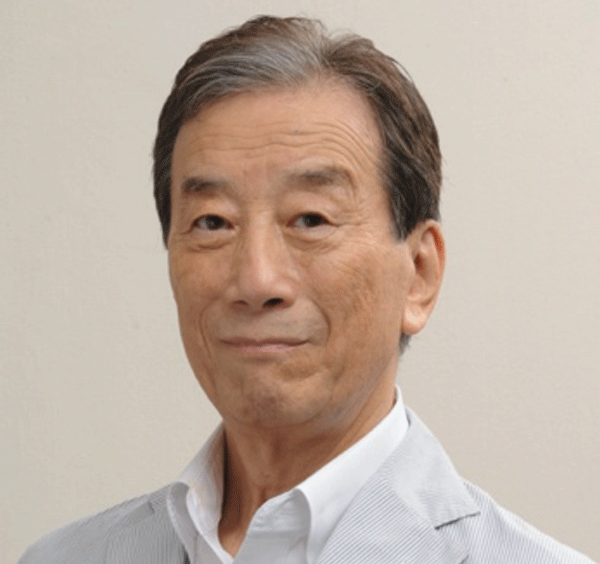
japan
Kurokawa Kiyoshi,
Chair, Corona Committee (expert advisory panel to the Japanese government) and Professor Emeritus, National Graduate Institute for Policy Studies (Tokyo), on Japanese state policies and societal responses to the Covid-19
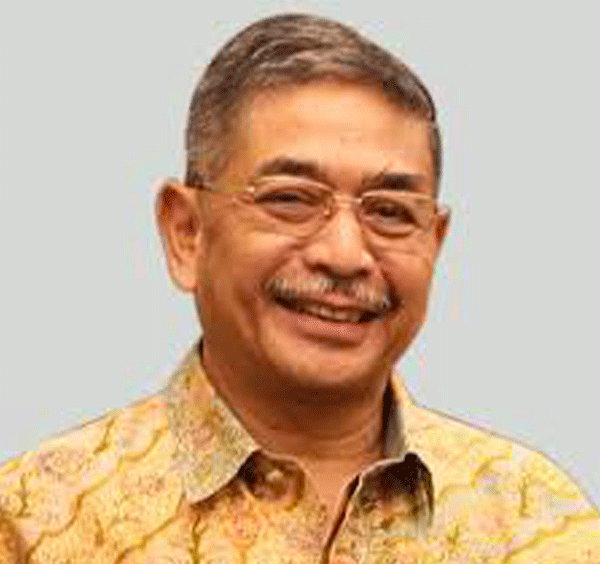
indonesia
Amin Soebandrio,
Chair, Eijkman Institute for Molecular Biology (Jakarta) and Former Chair, Expert Panel of the Indonesian National Committee for Zoonotic Diseases, on the epidemiology of Covid-19 in Indonesia

malaysia
Woo Wing Thye,
President, Jeffrey Cheah Institute for Southeast Asia; Director, Jeffrey Sachs Center on Sustainable Development, Sunway University (Selangor); and Professor, University of California at Davis (California), on Asia’s experience in handling SARS (2003), H1N1 (2009), MERS (2012-2013), and Covid-19 (2020-2021), and public policy agenda to prepare for the next pandemic
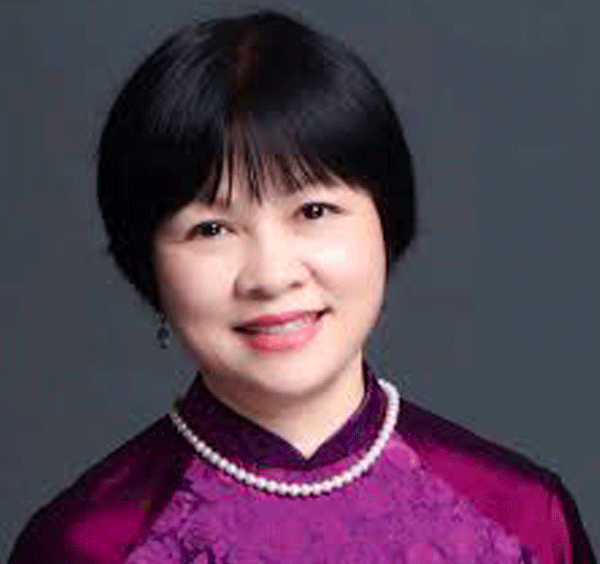
vietnam
Khuat Thu Hong,
Director, Institute of Social Development Studies (Hanoi), on the Covid-19 pandemic and the changing Vietnamese family, with particular reference to domestic violence
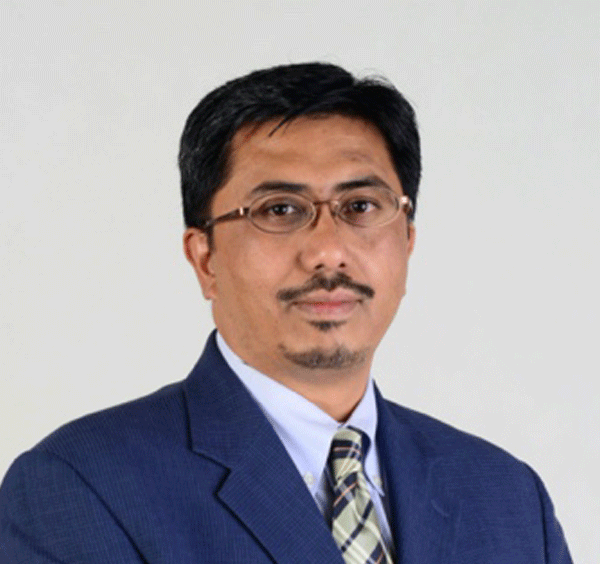
malaysia
Shandre Thangavelu,
Professor, Jeffrey Cheah Institute for Southeast Asia, Sunway University (Selangor), on unlocking the lockdowns of the Covid-19 pandemic in Malaysia, using the input-output framework to examine the economic impact of the “new normal” in the movement of people
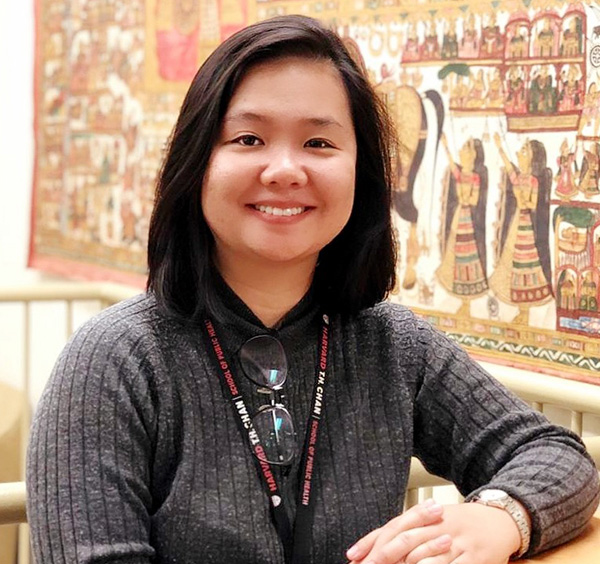
indonesia
Monica Nirmala,
Advisor to Indonesia’s Coordinating Minister for Maritime and Investment Affairs (Jakarta), on planetary health and post-pandemic future for a healthier Indonesia and beyond
Program (for registered attendees only)
The 44th Southeast Asia Seminar (Webinar) on The Covid-19 Pandemic in Japanese and Southeast Asian Perspective: Histories, States, Markets, Societies
Center for Southeast Asian Studies, Kyoto University, Japan
Via Zoom Webinar
March 1, 2021, 9 a.m. to 5:15 p.m. (Japan Standard Time/GMT+9:00)
Day 1, March 1, 2021
- 9:00-9:05
Welcome Remarks by Hayami Yoko, Director, Center for Southeast Asian Studies (CSEAS), Kyoto University - 9:05-9:15
Introduction to the 44th Southeast Asia Seminar by Decha Tangseefa, Chair, Southeast Asia Seminar Committee, CSEAS - 9:15-9:30
Self-introduction of Seminar Participants (only the core participants)
Moderator: Decha Tangseefa (CSEAS Kyoto University) - 9:30-10:30
Lecture 1:
“Worrying about the Next Pandemic (Despite the Assured Absence of Donald Trump)” by Woo Wing Thye, Sunway University and University of California at Davis
Moderator: Mieno Fumiharu (CSEAS Kyoto University)
Timekeeper: Theara Thun (CSEAS Kyoto University)
Discussants: Ariza Fuadi (Nagoya University/ Universitas Diponegoro), Nurhafilah Musa (National University Malaysia), Max Regus (The Indonesian Catholic University of St. Paul Ruteng), Esmond Soh Chuah Meng (Nanyang Technological University) - 10:30-11:30
Lecture 2:
“The Corona Epidemic: Its Short- and Possible Long-Term Impacts” by Kurokawa Kiyoshi, University of Tokyo, Graduate Research Institute for Policy Studies and Tokai University
Moderator: Kobayashi Atsushi (CSEAS Kyoto University)
Timekeeper: Yamada Chika (CSEAS Kyoto University)
Discussants: Shibuya Kazuhiko (Tokyo Metropolitan University), Wichuta Teeratanabodee (Nanyang Technological University), Vo Huong (National Chengchi University) - 11:30-12:20
Lunch Break - 12:20-14:20
Seminar 1 Session:
“The Influenza Pandemic of 1918-1919 and Covid-19 Pandemic of 2020 in the Philippines: Some Historical Parallelisms,” Francis Gealogo, Ateneo de Manila University
“Thailand and Covid-19: Health vs Economics,” Chris Baker and Pasuk Phongpaichit, Chulalongkorn University
“Unlocking the Lockdowns of COVID-19 Pandemic in Malaysia: Impact Analysis of Moving to “New Normal” in Movement of People using Input-Output Framework,” Shandre Thangavelu, Sunway University
Moderator: Julie delos Reyes (CSEAS Kyoto University)
Timekeeper: Kobayashi Atsushi (CSEAS Kyoto University)
Discussants: Jaybee Coronel (University of the Philippines-Diliman), Kevin Pham (Gettysburg College), Rosa Bella Quindoza (Polytechnic University of the Philippines), Maria Thaemar Tana (University of the Philippines-Diliman) - 14:20-14:30
Coffee Break - 14:30-16:00
Seminar 2 Session:
“‘During the epidemic… I was beaten with bruises all the time’: The Impact of COVID-19 on Domestic Violence against Women in Ha Noi, Viet Nam,” Khuat Thu Hong, Institute of Development Studies (Hanoi)
“Planetary Health: Post-Pandemic Future for Healthier Indonesia and Beyond,” Monica Nirmala, Advisor to Indonesia’s Coordinating Minister for Maritime and Investment Affairs
Moderator: Theara Thun (CSEAS Kyoto University)
Timekeeper: Julie delos Reyes (CSEAS Kyoto University)
Discussants: Najmah (Sriwijaya University [UNSRI]), Ngo Ha Chau (London School of Economics and Political Science), Anna Christi Suwardi (Mae Fah Luang University) - 16:00-16:15
Coffee break - 16:15-17:15
Lecture 3:
“The Fight Against Covid-19 Pandemic – Indonesian Perspective” by Amin Soebandrio, Eijkman Institute for Molecular Biology (Jakarta)
Moderator: Yamada Chika (CSEAS Kyoto University)
Timekeeper: Theara Thun (CSEAS Kyoto University)
Discussants: Benny Baskara (Halu Oleo University), Nur Aisyah Kotarumalos (Seoul National University Asia Center), Wawan Sobari (Universitas Brawijaya), Kuno Genta (Kyoto University) - 17:15-
General Discussion
Note: Please note that the time zone indicated in the schedule is based on Japan Standard Time (GMT+9).
Contact
email: seaseminar44[at]cseas.kyoto-u.ac.jp




